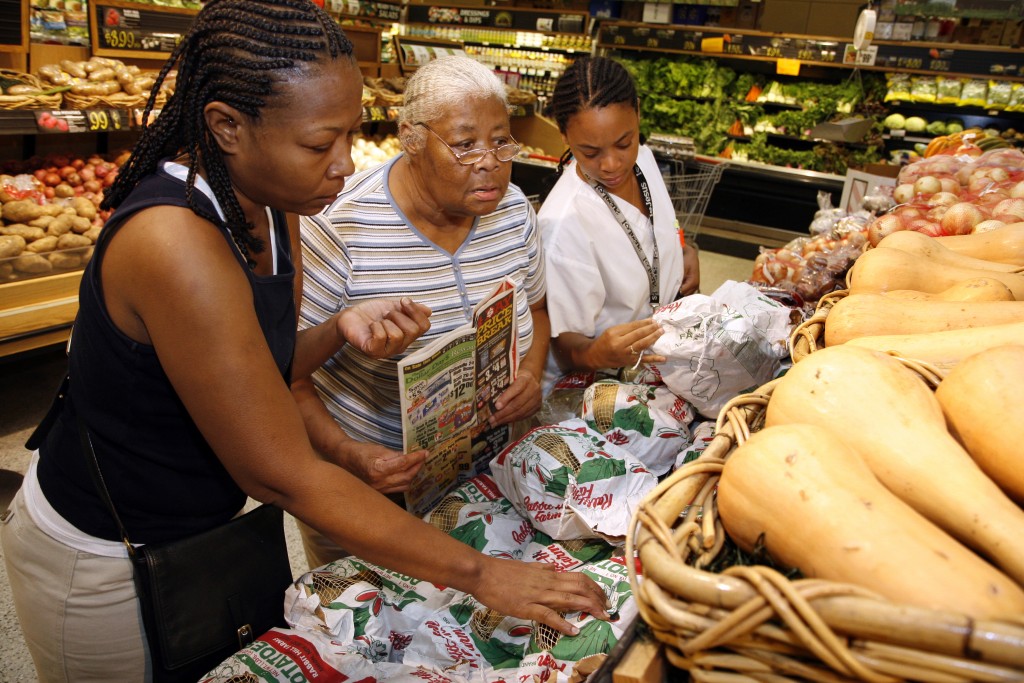Back

Blog
Grocery Stores Growing into Their Role as Inner City Economic Catalysts

September 8, 2017
From urban agriculture to kitchen incubators, many forms of food-related enterprises can act as catalysts for inner city job growth and business development. ICIC has previously covered food clusters, food hubs, and other food industry businesses. While the direct impact of grocery stores is more commonly considered part of the broader discussion around food deserts, they too can have significant economic effect on their local communities.
UpLift Solutions, a nonprofit working within the food industry, recently released a webinar on the economic impact that grocery stores have within local communities. Below are some highlights:
Grocery stores provide extensive job opportunities. While many jobs at grocery stores are entry-level, they offer a starting point for otherwise hard-to-hire applicants, including those who have been unemployed for long periods of time. The size of the grocery industry also offers significant opportunities for upward mobility.
Grocery stores strengthen the economic health of the surrounding neighborhood. Grocery stores have been shown to increase nearby residential home values by five to seven percent. Homeowners benefit from the increased value of their homes. Additionally, property tax revenue for the city increases, which can help to improve city services or go toward other localized economic development initiatives.
Grocery stores act as anchors that attract other retail stores. Grocery stores have long been considered high volume retail anchors. The stores generate considerable foot traffic and have been shown to draw complementary commercial development, increasing overall retail activity and employment rates.
The benefits aside, opening and maintaining an urban grocery store is not without its challenges.
The webinar explained that traditional grocery stores have narrow profit margins. If a traditional grocery store were moved from the suburbs to an inner city location, it would experience a four percent loss, often removing any remaining margin. The shopping pattern of inner city residents can often conflict with the traditional grocery sales model. In urban markets, people purchase fewer gourmet goods and other high-margin items. The workforce is less prepared, requiring grocery stores to provide more extensive on-the-job training. As such, grocery store job training in inner city neighborhoods costs about four times more than it does in suburban locations.
How can companies be convinced to open stores in inner cities when profitability is a barrier?
UpLift suggests a model in which the grocery store acts as an anchor for the neighborhood, providing additional programming and wraparound services for low-income residents – a grocery store that is more than just a grocery store in the traditional sense.
Particularly in urban areas, the opportunity can be found by integrating additional retail, programs and services in the grocery store’s physical space in order to maximize local impact. For example, in addition to housing a bank or credit union, grocery stores can provide on-site financial literacy programs for grocery employees and shoppers. Education can touch upon topics such as predatory lending and the harms of cash checking services. This model has been implemented in the Brown’s Super Stores chain (now ShopRite) in Philadelphia with great success.
Inner city grocery stores can also work with community health centers to provide services on site, such as nutrition and health and fitness education. UpLift, in partnership with health technology platform Healthie, will deploy registered dietitians at supermarkets to provide community nutrition education, one-on-one counseling, and hands-on learning, in addition to offering financial planning programs.
Moreover, providing these additional services can allow grocery store operators to access flexible sources of capital. By focusing on a more holistic model, grocery stores can gain financial support from foundations and larger health networks. Taking a broader approach to community revitalization can also help align grocery stores with community development financial institutions (CDFIs). While CDFIs have proven successful in lending to housing developments, charter schools and community health centers, they are increasingly entering the urban grocery store market. As an example, three CDFIs recently partnered to help a growing grocery chain open 10 new grocery stores, all located in lower-income communities.
Overall, policymakers and economic development practitioners increasingly understand the potential economic impact of inner city grocery store expansion. That grocery stores can mitigate food deserts, while also activating retail districts and providing needed financial services, is certainly a win-win for inner cities.
